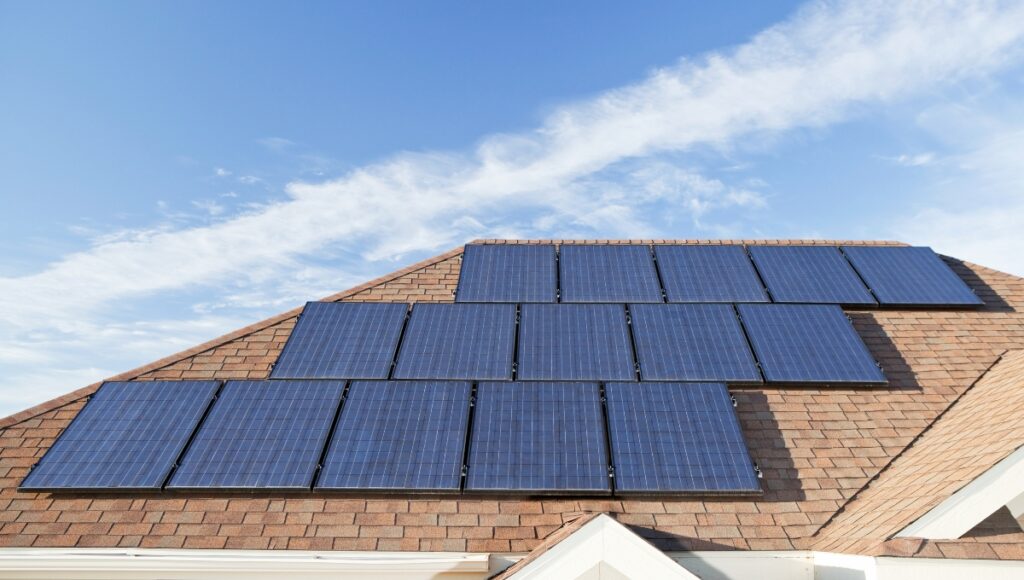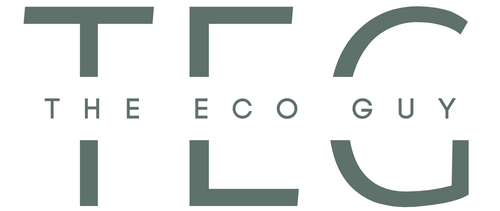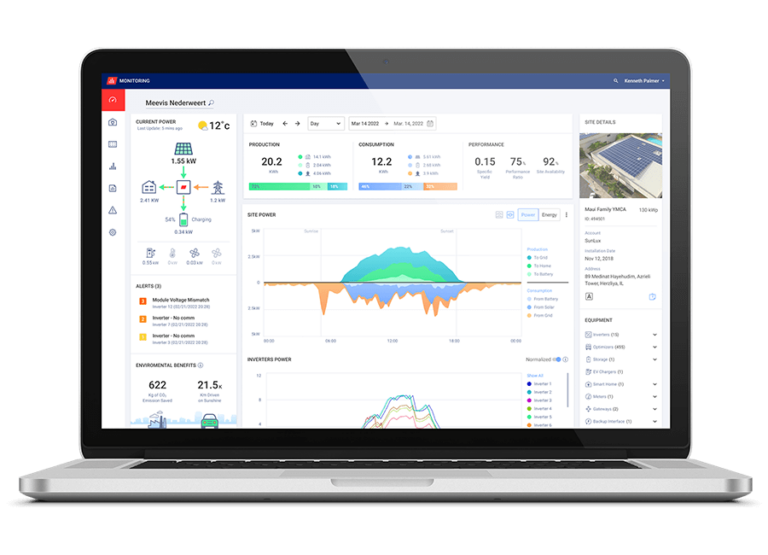Are There Free Solar Programs? (2023 Guide)

Have you ever had a solar sales representative knock on your door, offering free solar panels if you complete a basic form? Have you ever experienced people who appear to be focused on collecting your information, instead of helping guide you through your solar journey? Well, that’s likely what they are up to.
Are you wondering if there are any free solar programs available? If so, rest assured that you’re not alone!
Despite what you may have heard, sadly there is no such thing as free solar programs. Nevertheless, there are still various incentive options available to you via federal, state, and local government bodies that could help towards the cost of your setup.
In this article I’ll talk about the types of solar programs, the qualifications for these programs, selecting the right program for you, and my 2023 Guide to Solar Programs in the USA.
Types of Solar Programs
Federal & State Rebates/Tax Incentives
Federal and state rebates/tax incentives are a great way to help offset the cost of installing solar energy systems. These programs provide cash back on your purchase or installation, as well as tax credits for any money spent on solar-related projects.
Depending on where you live, there may also be additional local incentives available, such as property tax exemptions or other financial assistance. Generally speaking, these types of incentive programs are designed to encourage homeowners and businesses to invest in renewable energy sources like solar power and reduce their reliance on traditional forms of electricity generation.
Utility Companies & Non-Profits Offering Financial Assistance
Utility companies and non-profits can also provide financial assistance for solar energy systems. These organizations usually offer grants, loans, or other forms of financing to help offset the costs associated with installing a solar energy system.
This type of program is often geared towards low-income households who may not otherwise be able to afford the upfront cost of a solar installation. The funds are typically used to cover the purchase price of the equipment, labor costs, permitting fees, and other related expenses.
Additionally, these programs may even include incentives such as net energy metering (NEM) or renewable energy credits that could further reduce your monthly electricity bill.
Leasing or Financing a Solar System
For those looking to install a solar energy system, leasing or financing options are available. These programs allow homeowners and businesses to invest in renewable energy sources such as solar power without having to pay the full cost of installation upfront.
Leasing and financing options can provide cash back on the purchase or installation, tax credits for any money spent on solar-related projects, grants, loans, and other forms of financing. Depending on where you live there may also be additional local incentives available such as property tax exemptions or other financial assistance.
If you’re looking for financing options, consider researching what commercial banks near you have to offer. Compare their rates with those of traditional banking institutions to determine the best fit for your needs. Often, rates are noticeably lower at smaller commercial banks and credit unions in comparison to large banking institutions.

Qualifications for Solar Program Participation
Location & Eligibility Requirements for State Programs
When it comes to eligibility, each state has its own set of criteria for participating in its solar program. Generally speaking, most programs require that you live in the state where the program is being offered and meet certain income requirements.
Additionally, there may be restrictions on what types of systems are eligible for installation or incentives such as whether a roof-mounted system or a ground-mounted system is needed. Make sure to check with your state’s program guidelines for specific requirements.
In some cases, you may also be required to use a qualified installer when purchasing and installing your solar energy system. It’s important to research service providers in your area and compares costs before making a final decision.
Income Requirements for Utility Company Programs
There may be programs from your local utility company or non-profit organizations that offer financing for solar energy systems. These types of programs often have income requirements in order to participate.
For instance, some programs may require you to have an annual household income below a certain threshold in order to qualify for assistance. Additionally, you may be asked to provide other documentation such as proof of homeownership, a valid driver’s license, or other types of identification.
Requirements for Lease or Financing Options
When it comes to leasing or financing a solar energy system, there may be other requirements that you must meet in order to qualify. This could include having a good credit score, proof of income, and other financial information. It’s important to read the terms and conditions associated with any program before making a final decision.
You should consider how many years you expect to live in your home if you’re looking into leasing solar energy systems. Many leasing programs typically require you to stay in the home for a certain number of years or they may charge a fee if you cancel your agreement early. Additionally, some lease agreements may not be transferable if you decide to sell your home during the term of the agreement.

Selecting the Right Program For You
Comparing Costs and Benefits of Different Options
When researching what free solar programs are available, it is important to consider not just the cost of the system, but also the financial and environmental benefits. The amount you can save on your electricity bills will depend on the size of your solar array, as well as how much energy you use. It may be worth considering a larger system for greater savings if you have the space. The environmental benefits will include reduced greenhouse gas emissions, and in some cases solar could even help to lower air pollution in your area.
It’s always recommended to compare multiple quotes from different companies before you make a decision, to ensure that you are getting the best deal and most suitable package for your needs. There are also different types of solar available (such as photovoltaic or thermal), so be sure to explore all your options before making a final decision.
Working with Professionals to Make an Informed Decision
When it comes to solar programs, you want to be sure that the system you choose is right for your needs and will provide maximum benefit. Therefore, it’s important to consult with a professional installer or energy advisor before making a final decision. They can walk you through the different types of solar and help identify any potential savings or incentive opportunities available to you.
Additionally, some programs may offer additional support such as access to financing or expert advice on how to maximize the benefits of your system. It’s important to do your research and make sure that you are getting the best deal for your needs before signing any contracts.
I recommend checking out EnergySage.com to learn more about solar and help with finding local solar companies and programs in your area. They have a great comparison tool which enables you to compare solar offers side-by-side and find the best deal for you.
2023 Guide to Solar Programs in the USA
Latest Changes and Updates to Legislation in Each State
With the growing popularity of solar energy, many states have implemented new legislation to increase access and affordability for citizens. In 2023, these changes are more prominent than ever before as governments strive to create a sustainable future that is powered by renewable sources.
From tax credits to net energy metering policies, each state has its own unique set of regulations regarding solar energy. This guide will provide an overview of the latest changes and updates to legislation around solar in all 50 US states.
The US government offers a number of incentives and rebates to support the installation of solar energy systems across the country, including the Solar Investment Tax Credit (ITC). The ITC provides tax relief for solar investments and is available in all states. There are also various grants and loan programs offered by the US Department of Energy that can help you finance your solar system.
Financing Opportunities Available in Different Cities and Regions
When it comes to financing solar energy systems, there are a variety of options available to homeowners and businesses. Depending on your location, you may be able to access tax credits, grants, loans or other incentives that can help reduce the cost of installing a solar system.
Different cities and regions have different opportunities for financing solar projects, so it’s important to do your research before making any decisions.
For example, the city of Austin, Texas has an incentive program called Solar Austin that offers rebates up to $20,000 for residential solar energy systems. Meanwhile, in California they have the Go Solar California program which provides incentives and discounts on solar panel installations.
It’s important to investigate what financing opportunities are available in your area before making any decisions.
How Technology Advances Will Impact Future Savings
As technology advances, solar energy systems are becoming more efficient and affordable, leading to greater savings for homeowners and businesses.
The latest advancements in solar technology have made it easier than ever before to install a system that will generate clean, renewable energy while reducing utility bills. With the increasing availability of innovative products such as net metering and battery storage solutions, there is now an even greater potential for financial savings when investing in a solar energy system.
As new technologies continue to be developed and improved upon over time, we can expect these cost-saving benefits to become even more pronounced in the future. Finally, solar technology advancements will make renewable energy more accessible for all, thus building a brighter and greener future for our future.
Final Thoughts
Although there are no free solar programs available, initiatives and incentives have been introduced to make owning solar much more affordable.
Solar energy has come a long way in recent years, and it’s only going to get better.
Today, there are a variety of financial incentives and programs available throughout the United States that can help homeowners and businesses invest in solar energy systems.
From attractive tax credits to net energy metering policies, each state has its own set of regulations that can significantly reduce the cost of installation. Additionally, new technologies are being developed that will further increase the efficiency and affordability of solar energy systems in the future.
For these reasons, now is a great time to invest in solar energy for your home or business – if you haven’t already done so! With the right resources and support, you can be well on your way to a brighter and greener future.






